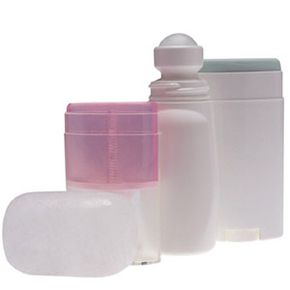If the armpits of your clothes are soaked within the first few hours of getting dressed and you haven't even done any manual labor, you may wonder whether you need a stronger antiperspirant -- or even a prescription-strength one. Some personal hygiene issues like perspiration or body odor problems can be uncomfortable or just plain embarrassing. But you don't have sweat it anymore: We'll break it all down and show you what's going on with this bodily function and some ways to manage excessive perspiration.
First, let's make it clear that body odor and perspiration are two separate -- yet, closely related -- facts of life. Your body produces perspiration through glands that pump sweat through your pores. Sweating is your body's method of cooling itself off. Although you've got sweat glands all over your body (except for your lips, nipples and genitals), you've got special ones in your armpits and anal-genital area. These glands are located near the bottom of your hair follicles and produce fluid with a yellowish color. Once that fluid combines with bacteria, it gives off that noticeable odor we associate with sweat. So, should you be more concerned about preventing excessive perspiration or disguising the dank smell that accompanies it? In other words, should you be using antiperspirant or deodorant?
Advertisement
That's a tough question to answer, especially because people use the terms deodorant and antiperspirant interchangeably. That's not exactly incorrect; after all, most underarm-care products on the market today are combination antiperspirant-deodorant. But as their names hint, antiperspirant reduces sweating, whereas deodorant masks your body's natural scent or odor. What's more, the U.S. Food and Drug Administration (FDA) classifies antiperspirants as drugs and considers deodorants to be cosmetics.
Here's the skinny: You may or may not need a prescription antiperspirant. It just depends on the severity of the issue -- be it odor or sweating -- and whether you've tried everything else to manage it. Your doctor will probably have you try alternative treatments, such as implementing changes to your diet, before prescribing an antiperspirant.
Read on to learn some ways you can manage your perspiration and odor issues with and without a prescription.
Advertisement



